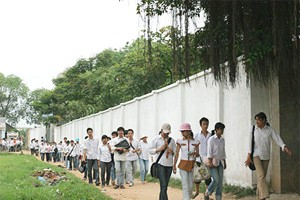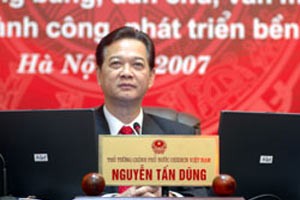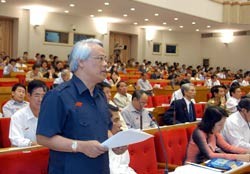A regulation requiring state employees to work on Saturdays has been in effect for three months already but the longer workdays directed have yet to prove as effective in tackling bureaucratic backlogs as initially expected or hoped.

Several years ago, a new labor law excluded Saturdays from bureaucrats’ working weeks and was hailed as in being better attuned to the country’s new market focus and a potential means of reducing state budgets and stimulating new consumer spending on weekends. But that regulation was rescinded last August and Saturday was added back to the bureaucratic workweek.
To gauge the impact of the re-extended workweek, now that government offices have had time to settle into their new routine, Sai Gon Giai Phong recently strolled round some bigger bureaucratic offices in Ho Chi Minh City to get a feel for the state of state employees’ workload throughout their new working week.
What was seen on Saturday’s was not exactly inspirational. Few government folks seemed to be doing much of anything other than sitting, apparently waiting for something.
At Notary Public Office No 4, Monday to Friday, most staff were obviously working steadily and the office was packed with applicants. But, says the office’s Vice-Director, Nguyen Kim Chi, Saturdays see only a quarter of the applicants processed Monday to Friday, and, they can only come to submit papers which will wait till Monday to Friday to be processed.
Several other bureaucrats told Sai Gon Giai Phong nothing of substance is done on Saturdays.
According to Phan Van Cheo, head of Notary Office No 1, on Saturdays most of his staff work mornings but few come in the afternoons.
A policeman at the Tan Binh District police station said they only accept applications regarding business applications on Saturdays. Any other work must wait till Monday to Friday.
Tax offices and the judiciary echo these reports.
Budget costs, stunted spending
Since state employees have to work an extra day each week, government salaries cost at least 10 percent more and public funds are reducing accordingly - not to mention the added costs keeping Government offices open six days a week instead of five, whether they are fully occupied or not.
In addition, state employees now have less free time to shop, travel or otherwise spend what some call their “earnings”, and the economy consequently takes a hit.
To cope with increasing administrative workload, Cheo proposed instead increasing staff during peak hours, not increasing the hours of all state employees.
Others said the root of the problem is excessive paperwork and suggested streamlining bureaucratic red tape, including passing laws to prevent overlaps in legal documents and ministerial or departmental responsibilities.
Recently, the Ho Chi Minh City Department of Internal Affairs proposed state staff work extra only on Saturday mornings or ten hours a day from Monday through Friday instead of eight.
But Chi rebutted the DoIA proposals, saying eight hours a day is long enough, all that is needed is for state employees to work harder for just five days a week.












